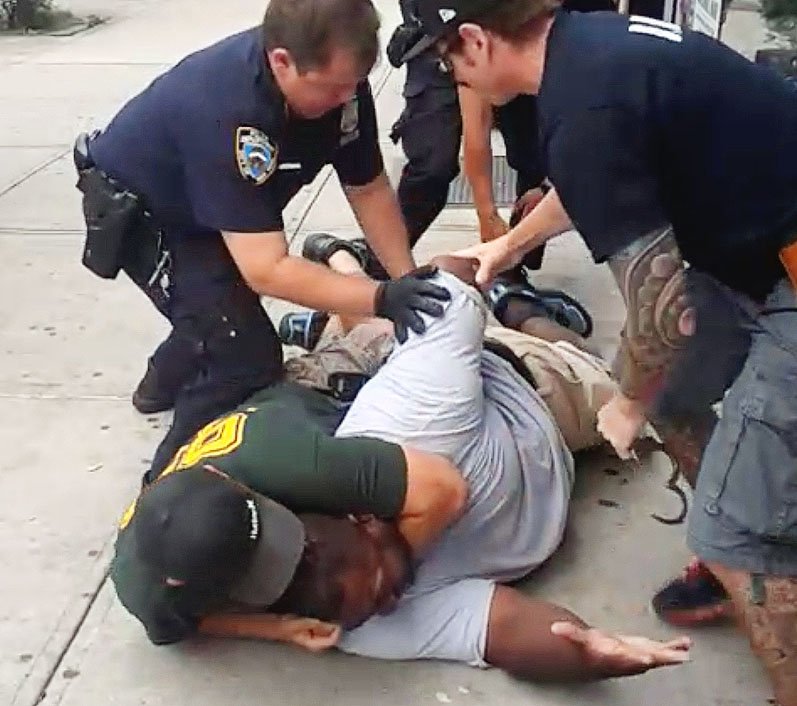It was a decade ago on this date, July 17, at 3:30 p.m. that a group of plainclothes officers approached Eric Garner in front of a beauty supply store on Staten Island. He was accused of selling loose cigarettes without a tax stamp. Though that’s against the law, it’s not the kind of thing that requires sending the cavalry. But the cavalry was there, and a tense confrontation ensued — and escalating matters further, one of the officers placed his arm around Garner’s neck and brought him to the ground, pressing him against the sidewalk.
Within minutes, and after uttering “I can’t breathe” 11 times, Garner was dead — a victim of overzealous policing. The nascent Black Lives Matter movement spread, with that three-word cry on protesters’ lips across America.
It should go without saying that the killing of Garner, which shaped New York City and national politics, is something the public had every right to know about. But those were the days before police were routinely equipped with body-worn cameras; the only reason the indispensable bystander video ever went public is because the Daily News acquired it.
And the only reason The News acquired it is because one of our photographers heard what was happening on a police scanner and rushed to the scene. Letting the press listen in on scanners has a great deal of upside — and there’s precious little evidence that it puts police officers and operations at any risk. Yet the NYPD has been encrypting more and more of its communications, letting the daily workings of the single most powerful branch of our government escape broader scrutiny. That’s wrong.
Reflecting fully on what’s happened in the decade since Garner’s killing also requires an honest look at police discipline. It was nothing short of a disgrace that it took the NYPD more than five years to fire Daniel Pantaleo, the cop who put Garner in the chokehold. It was a parallel disgrace that the release of police disciplinary records was shielded under a cockamamie city interpretation of state law known as 50-a.
The latter has been fixed, and the former is a real work in progress. Complaints of police misconduct are up and the likelihood of swift and sure discipline of cops against whom misconduct has been substantiated is in clear decline. Both are problems.
We must also reassess whether policing of lower-level offenses has been properly calibrated. The breaking of “small” laws ought not be ignored; it’s a real problem when people vandalize storefronts or the like. But neither should the police kill mosquitoes with sledgehammers. And even when it’s appropriate to have officers deal with relatively minor offenses, they must be careful in the tools they apply, as racially disparate and overly aggressive policing is often the result. Case in point: how cops were thrown at social distancing enforcement in the early days of COVID.
In the years before and after the rupture, coincident with the de Blasio administration’s agenda, quality of life enforcement shifted away from the NYPD. There’d been more than a half-million criminal summonses in 2009. By 2014, the number had dropped to about 350,000 — and by 2019, to under 100,000.
Proponents of the intuitive “broken windows” theory, which says smaller crimes ought not be ignored lest they create fertile ground for bigger offenses, have yet to fully and honestly reckon with the fact that a far lighter touch on policing disorder coincided with a dramatic decline in violent crime.
Quality of life summonses have gone from around 58,000 in Fiscal Year 2021 to 135,000 in Fiscal Year 2023 so far under Mayor Adams. That’s still far below Bloomberg- or Giuliani-era norms, which is a good thing — and cops rightly say in most cases they’re only responding to community complaints.
Ten years after Garner’s killing, police have a legitimate role to play in curbing quality-of-life crimes. They must use their power smartly and responsibly.
